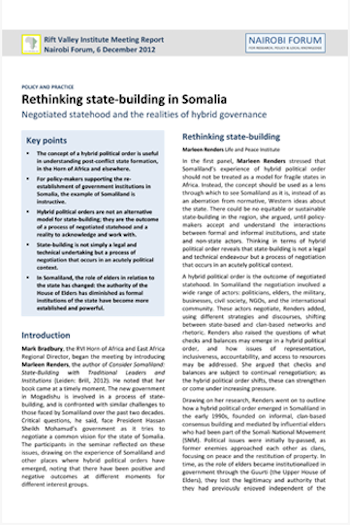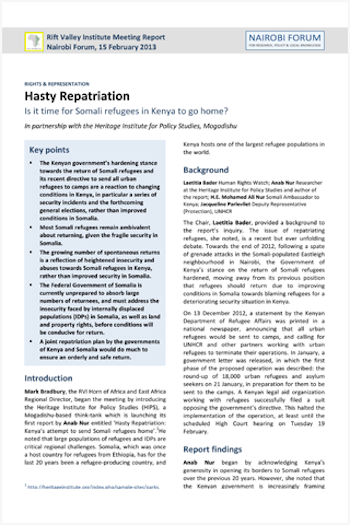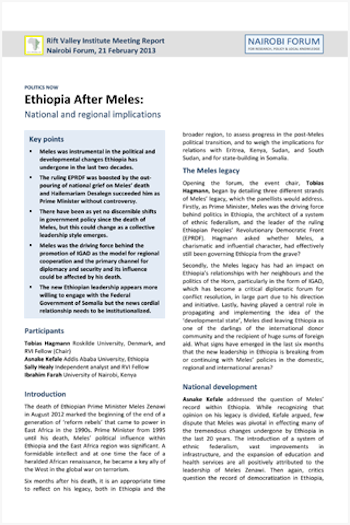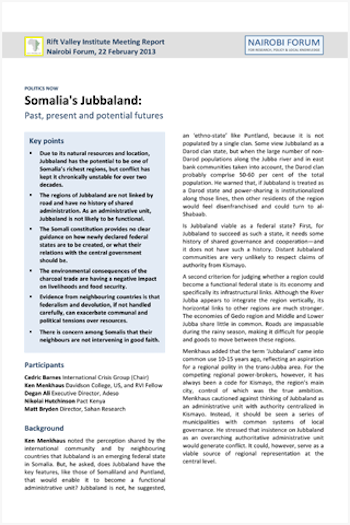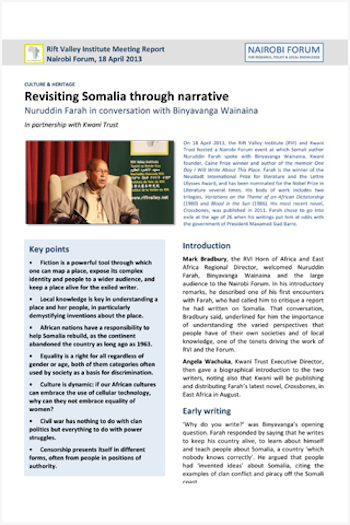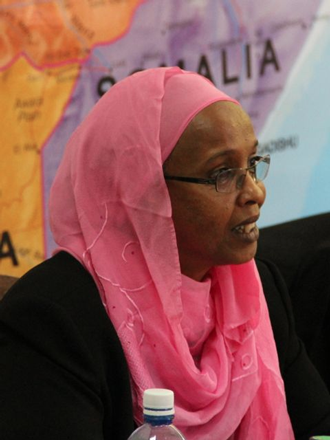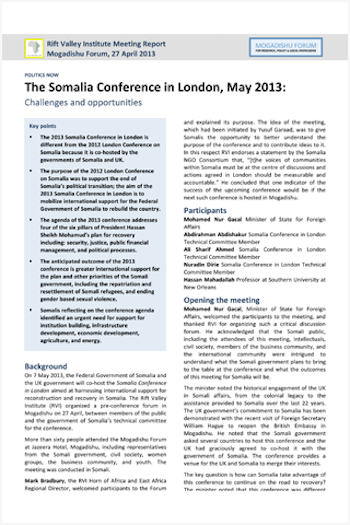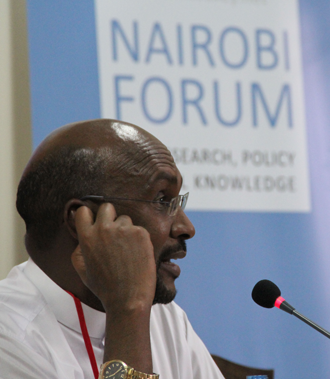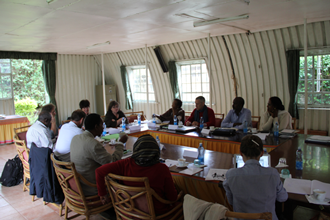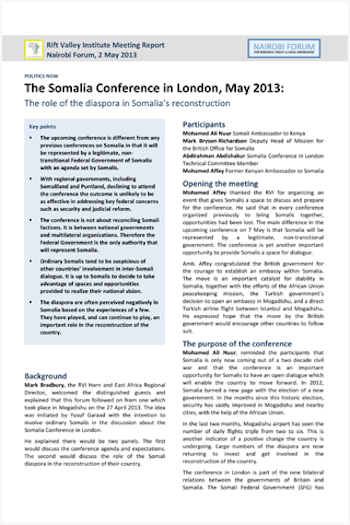Key points The concept of a hybrid political order is useful in understanding post-conflict state formation, in the Horn of Africa and elsewhere. For policy-makers supporting the re-establishment of government institutions in Somalia, the example of Somaliland is instructive….
RVI publishes books, research reports, research papers, briefings and meeting reports in a range of formats. Publications cover policy, research, arts, culture and local knowledge in the countries of eastern and central Africa. Research publications—books, reports and papers—are peer-reviewed. Some RVI publications are also available in French and/or Arabic.
The RVI is a signatory of the Budapest Open Access Initiative (2001); all publications are free for download in PDF format under Creative Commons licences. The views expressed in books and reports published by the RVI are those of the authors, not the Institute.
SEARCH
PUBLICATION TYPE
LANGUAGE
REGION
COUNTRY
Key points The Kenyan government’s hardening stance towards the return of Somali refugees and its recent directive to send all urban refugees to camps are a reaction to changing conditions in Kenya, in particular a series of security incidents…
Key points Meles was instrumental in the political and developmental changes Ethiopia has undergone in the last two decades. The ruling EPRDF was boosted by the out-pouring of national grief on Meles’ death and Hailemariam Desalegn succeeded him as…
Key points Due to its natural resources and location, Jubbaland has the potential to be one of Somalia’s richest regions, but conflict has kept it chronically unstable for over two decades. The regions of Jubbaland are not linked by…
Key points Fiction is a powerful tool through which one can map a place, expose its complex identity and people to a wider audience, and keep a place alive for the exiled writer. Local knowledge is key in understanding…
Key points Hybrid political orders are a reality in Somalia and have played an important role in political recovery and stabilization, but can become an obstacle to democratization. War can serve as a tool of state-building and can create…
Key points The 2013 Somalia Conference in London is different from the 2012 London Conference on Somalia because it is co-hosted by the governments of Somalia and UK. The purpose of the 2012 London Conference on Somalia was to…
Key points Enormous internal innovation is taking place within pastoralist communities, challenging the perception that pastoralist communities simply cope and adapt, and revealing sustainable pathways for pastoral development. Government apathy towards the pastoral economy means that Kenya, in contrast…
Key points The impact of war on Somali men is poorly understood in Somali society and among international policy makers and aid organizations. The prevalence of rape in Somalia is indicative of the profound impact of war, the collapse…
Key points The upcoming conference is different from any previous conferences on Somalia in that it will be represented by a legitimate, non-transitional Federal Government of Somalia with an agenda set by Somalis. With regional governments, including Somaliland and…
Recent Publications

Political Economy of Cash and Markets in Sudan
February 27, 2026
The research provides a snapshot of the war in Sudan in the period from February to April 2025. However, the war is dynamic, with political alliances and territorial control changing. The April 2023 conflict between the Sudan Armed Forces (SAF)

Rethinking Ethiopia II: Youth and politics
February 26, 2026
Seminar report Rethinking Ethiopia, a collaborative essay competition initiative between Addis Ababa University’s Institute for Peace and Security Studies (IPSS) and the Rift Valley Institute’s (RVI) Peace Research Facility (PRF), offers a platform for Ethiopian youth to express their ideas

2025 Year in Review
February 16, 2026
The 2025 Year in Review provides an overview of the Rift Valley Institute’s work over the past year across eastern and central Africa. The report highlights RVI’s research and publication outputs, education and training activities, and public forums and convenings,

